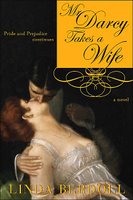 Author:
Author: Rebecca Hagan Lee
Published: August 2003 (Berkley)
Category: Historical Fiction
Series: Free Fellows League #1
Quote of Choice: I am not chattel to be bartered for in exchange for a horse, nor am I a bone to be fought over by
gentlemen who persist in behaving like hounds marking the lamppost boundaries of their territory.
I probably should've started with this title first, although you can get by quite easily starting anywhere in the series. As for setting up the members of the Free Fellows and their origins, Lee wrote a to-the-point prologue, with no tedious bits to bore the reader.
Griffin Abernathy, Seventeenth Viscount Abernathy and heir to the Earl of Weymouth, is about to join his cavalry regiment on the Peninsula. However, his father, the Earl of Weymouth, is quite distraught over the prospect of his only child and heir join one of the most dangerous branches of the military, thereby risking the extinction of their family line. Actually, Griffin kept his assignment a secret until two weeks prior to his scheduled departure. In order to secure the bloodline, Griffin's father (not an unkind man) blackmails him. If Griffin does not marry before leaving for the war against Bonaparte in two weeks, Weymouth will tear down Abernathy Manor (Griffin's home as Viscount Abernathy), leaving the servants and their families without a livelihood. Griffin agrees to find a bride, understanding his father's concern, and spends the next few evenings attending the social functions that Free Fellows are known to eschew.
During these social events, Griffin spots a beautiful girl and all others fade in comparison. She is Alyssa, youngest daughter (of five daughters) of the Earl of Tressingham. Her mama has high hopes for her youngest: a match to the Duke of Sussex, who happens to be the son of her close friend. However, Alyssa is not content to become a duchess because she wouldn't be able to pursue her hobbies since there would be more pressure to be prim and proper. She wishes to become a gardener, or rather, a garden designer who doesn't mind doing the dirty work (i.e. mucking out stalls so she can obtain manure to fertilize the garden). Lady Tressingham is constantly correcting her daughter's behavior, forbidding her to garden, ride her beloved horse without a chaperone, or interview the housekeeper about how she does everything, and then suggest how the housekeeper can run the household more efficiently.
Just a few days after beginning his quest for a bride, Griffin is introduced to Alyssa at Almack's, the infamous marriage mart, and quickly proposes. Despite the circumstances, he didn't do too badly, ending it well by saying, "You are the only young lady I've ever seen who made me believe I was meant to be her husband." Alyssa falls for Griffin, but it's up to her father to allow the marriage. Unfortunately, her mother is pressing for the Duke of Sussex to win her daughter's hand.
Thankfully, Griffin played dirty. He played to Tressingham's weakness for breeding champion foxhounds and horses. In exchange for Alyssa's hand in marriage, Griffin guaranteed Tressingham access to Weymouth's prized foxhounds for breeding, and loaned a prize stallion to him for the duration of his service in the war. Of course, the deal was made and Lady Tressingham was less than pleased to find that her daughter would wind up with a viscount instead of a duke.
Alyssa planned a huge society wedding in less than a week and it was a great success. She and Griffin had three days together before he departed, and they had to make good on the whole "securing the bloodline" thing. She didn't conceive, although it wasn't for lack of trying. While Griffin is in Spain, they communicate frequently by letters and it's sweet how Alyssa sends homemade soaps and lotions to her husband, his valet, and his lieutenant, who has become Alyssa's greatest fan.
After Alyssa realized she wasn't pregnant, she grew depressed and didn't come out of her room for days. Because Griffin had told Colin and Jarrod, the other two members of the Free Fellows (the Duke of Sussex joins later) to watch over Alyssa, they quickly went to action. It was very telling of their character when they visited so frequently and were so concerned over their friend's wife.
Do not despair! Griffin comes back from the war a hero, although he was severely traumatized. It adds some brevity to the whole romance thing and I liked it because it made the whole story deeper and more meaningful when the happily ever after came around.
It was an excellent read!
 Author: Linda Berdoll
Author: Linda Berdoll
